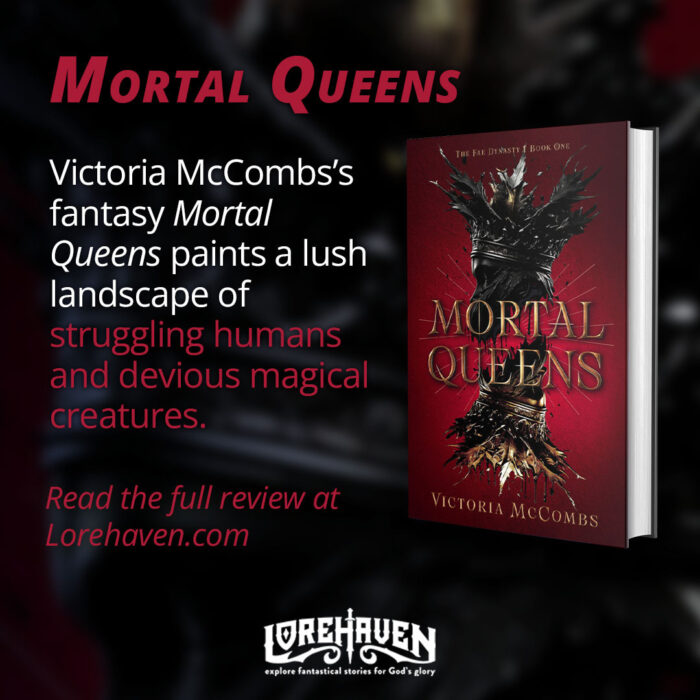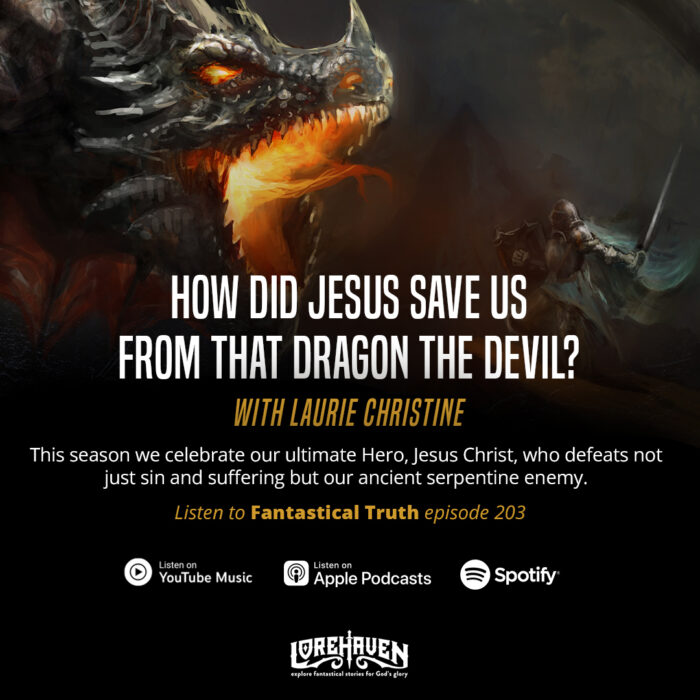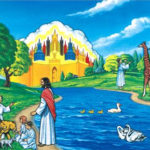Imagination: For God’s Glory and Others’ Good, Part 2

The Tabernacle: made with man's imagination, used for God's glory.
Otherwise entitled: an Open Letter to Fiction Critics replying to Dr. Russell Moore’s column about Christian romance novels.
A seminary professor’s recent column put to death a certain fiction I had wrongly believed.
That untruth went like this: that notion that novels and stories are evil because they are “untruth” isn’t around much anymore. Instead that’s a relic from Christianity’s legalistic past. Now Christians are better-informed about imagination, or else they’ve overcorrected too far into worldly flippancy, and either way, think differently about fiction.
I was wrong. Several reactions to Moore’s column helped me see that. Maybe you posted a reaction like that, or maybe you would have, if you’d seen the column. Here’s one of them:
It bothers me that “Christian” bookstores have a large section (larger than many other categories) dedicated to “fiction”. Doesn’t “fiction” mean “untrue”?
How is it that a “Christian” bookstore dedicate so much shelf space to books based in untruth? Just sayin’.
Sigh. Yes, based on blog-commentator Craig and others, it seems this notion is still around. I wrongly believed it was at least dying. Maybe you’re glad it’s still around? Well, as you may have guessed, most Speculative Faith readers share my view in opposing it, though not for the reasons you may think. No, we’re not holiness-compromiser types seeking to excuse some sin. Instead your friendly neighborhood fiction-fans may be strong believers, in love with Christ and honoring His Word and Gospel, who want to honor Him in their stories.
Of course, I really wish I had more time to build up a personal relationship with you folks so that you would, up close and perhaps in a local-church context, know yourselves who we are. Without this optimal scenario, though, I’m limited to words, so let’s see how I do.
And if you would prefer discussing professing Christians who do take fiction too far, you’ll perhaps find part 1 helpful. Sure, I know one could also become legalistic in favor of fiction, or forget the risks of abusing imagination. But there also exists an opposite danger, risked by Christians who even secretly assume that any good God-given Thing, including storytelling or even sex, is itself bad, instead of being a Thing we can use for His glory and others’ good.
2. Imagination ignored or rejected
Yes, many people abuse their imaginations for their own self-pleasure, just as all people will, by their sinful nature, want to abuse all God’s gifts. We all know about those who abuse sex, God’s wonderful gift intended to honor Him in our marriages, for their own lesser pleasures instead. (And if we’re honest, we’ll also admit our own participation.)
Thus, compared with that danger, many may assume that Anything Else would be better to believe. Too many others abuse imagination/sex. So let’s just pretend we don’t have these.
But that’s an overcorrection. It’s equally as dangerous. And it’s nowhere near the truth that saturates Scripture, based in the Gospel, that God still means His people to use His gift of imagination for good, just as He intends for us to use the gift of romance and sex for good.
Yes, all His good gifts now risk abuse in a fallen world, because of fallen humans. But let’s not forget that along with reconciling His redeemed people to Himself, God has a mission of reconciling things: His creation, His good gifts. Don’t let universalists who wrongly assume that “all things” must mean all people will be saved, steal this passage:
For in [Christ] all the fullness of God was pleased to dwell, and through him to reconcile to himself all things, whether on earth or in heaven, making peace by the blood of his cross.
— Colossians 1: 19-20 (bold emphasis added)
Once I would have automatically ascribed some spiritual-only meaning to this. Maybe that is why Paul, guided by the Spirit, made sure to say that “all things” includes Things “on earth or in heaven.” We shouldn’t read that as a truth about spiritual Things only; it means spiritual and physical Things. Other Biblical teachings confirm this, including this prophecy about the physical future new Earth (Rev. 21) from Haggai 2:
For thus says the Lord of hosts: Yet once more, in a little while, I will shake the heavens and the earth and the sea and the dry land. And I will shake all nations, so that the treasures of all nations shall come in, and I will fill this house with glory, says the Lord of hosts.
— Haggai 2: 6-7
Lest someone think that for the After-world, God will nuke all Things on the old Earth, here He makes clear otherwise. Yes, He “will shake” the spiritual and physical realms, yet some Things will remain: “the treasures of all nations.” God then describes a nation’s most precious possessions, which are really His own: “The silver is mine, and the gold is mine, declares the Lord of hosts” (verse 8). Yet why could these not also include a nation’s stories, so long as they have given glory to God through storytellers’ imaginations that honor Him?
A brief theology of Things
Nothing in Scripture says a story is morally equivalent to an untruth or a lie. Yet even deeper than that, nowhere does Scripture say that a Thing can become a source of evil. Instead from the beginning we find the opposite: man, because of his sinful heart, abuses Things.
- Genesis 3 — from the account of the first sin, what might we have, subconsciously, assumed about Adam’s and Eve’s rebellion? Did they choose to eat the forbidden fruit and therefore bring its sin into themselves? If so, God misspoke when, several times, He proclaimed all His creation “very good.” Or did the first humans make a sinful choice in their hearts, and therefore break God’s Law, abusing the fruit?
- Daniel 1 — was it sinful for Daniel to study, over three years, Babylonian myths and literature and even sorcery techniques? We even find that at the end of three years, standing before the king, Daniel and his three friends, with God’s gifting (Daniel 1:17), had studied the information so well that they outclassed all their pagan peers. Daniel was not only a studied scholar of the Harry Potter books of his day, but of actual pagan religion. With God’s help. Knowing that was not a sin.
-

I'm not calling anyone a Pharisee. Yet do recall: they also assumed sin came from Things, not from their own hearts.
Mark 7 — was Christ misguided when He sternly informed the Pharisees that their treatment of the Law, as if it would protect them from sinful Things, was of no use because they missed the point that sin came from within them, not from outside? - All the Gospels — was it sinful for Christ to tell parables? He often, though not always, taught in that way to His disciples, and even to the crowds, though he would often obscure their meanings for them (Mark 4: 10-12). Moreover, Christ taught with many different kinds of stories, from simple metaphor, to allegory, to fuller fictitious tales meant to illustrate old truths in new ways. (But I would hasten to point out that not all His stories were allegory, especially those that begin with “the kingdom of Heaven is like …” and then compare the Kingdom to the whole story, not only a symbolic object in the story.) Perhaps this above all other reasons specifically establishes story as a God-honoring way to speak old truths in new ways.
- Rev. 21 (cf. Isaiah 65: 17-25, 2 Peter 3: 8-13) — if God’s mission is to create a physical New Heavens and New Earth, after exposing the old Earth’s works (2 Peter 3:10), would storytelling be evil there? If not, why assume it’s evil today — given Scripture’s emphasis on how we abuse Things, not vice-versa, and especially the fact that Christ Himself used stories to speak old truths in new ways?

Scripture does not ban Godly storytelling from the New Earth. So why ban it now?
Hey, I don’t mean only to preach at those brothers and sisters of mine who’ve been led to believe that Imagination or stories, rather than being abused for evil, are themselves wrong. As I said before, I wish I had more time to show and not just tell why this is so, but these are my limitations. Far better would be, if not to spend time growing in the same local church, to reassure you with reminders that we, like you, have a heart for truth and holiness as God defines it. We don’t see all “rules” as legalistic. We’re as aware of the world’s garbage as you.
But we don’t want to ignore or reject God’s good gifts along with the garbage.
Would you disregard other uses of imagination just because others abuse that gift for evil? What about physical pleasure in marriage? Music? Writing? The internet and technology? Stained-glass windows and organs? The Bible itself? All these Things have been abused for evil. So if you don’t reject them, why would you reject stories, fiction and imagination?
Finally, for Dr. Russell Moore himself, in case he ever finds this: I heard your views in the great Southern Baptist Theological Seminary panel discussion about the blue-people-CGI Avatar movie, so I know you can enjoy great stories, even written by pagans. Perhaps next time you write a column about the risks of abusing romance genres for our own evil goals, you might be aware that some readers will overreact and dismiss fiction altogether?
Moreover, it might help, perhaps in a sequel, to explore how to use fiction and storytelling rightly, not just pointing out who uses it wrongly. However, that leaves an opening for us here to discuss truth and imagination with a more-positive view. More on that, next week.







































I’ve used similar arguments about dragons. If they were real, God must have made them like everything else, so they can’t be automatically evil
Galadriel: hmm, it would seem if I were determined to prove stories are evil, I would say something like “everything has been corrupted by sin.” That could also include theoretical dragons, I’d say. But I’d be wrong, because Scripture only talks about our hearts being corrupted by sin, and that this is reflected in nature — but not Things.
I suspect the notion of Things and Environment causing Neutral Us to sin, rather than our own sinful natures, has crept in from Pelagius and the Finneyites1. It’s a notion shared by liberal professing Christians and cultural-fundamentalists alike.
False Pelagian notion: Humans = neutral. Things = good or bad.
Biblical truth: Things = neutral. Humans = bad or bad/becoming good (redeemed by Christ).
1 This would be an excellent name for an oldies swing band.
On dragons: My theory is, God by and large used things that existed to describe other things. So why wouldn’t a dragon exist?
Moreover, there’s another false logic that if the thing the symbol stands for is evil, the thing itself is also evil. But we see the same symbols used in different ways in Scripture, so they cannot be inherently good or evil.
Exactly, Kaci — wish I’d thought of that.
For example, a serpent used as both a symbol of redemption and the source of the plague in Numbers (and of course was the form the Devil took). Also, both the Devil and Christ Himself are compared to a lion, for a lion can be described as both a dangerous predator and a powerful leader.
Everything was created ” very good “. God gave us all certain gifts and abilities and that includes imagination for some giving them the very real talent to tell stories in a way that should honor God.
I didn’t get a chance to read this until this afternoon, but reflecting on the Twitter info alone yesterday whilst driving home, my predominant thought was, “Um… Jesus told stories.”
So I’m glad you brought up the parable thing. And put it in bold, even!
Me: Well, for what it’s worth, I’ve had to eat my words a bit, because I hadn’t heard it till about two weeks ago – personally.
Me: I don’t understand what you’re rebutting here. I don’t know if his comment was directed at certain aspects of some romance or fiction in general.
Me: Legalistic in favor of fiction?
Me: Okay, basically, we’re back to the ‘how far is too far’ thing among artsy people. Was he saying that all storytelling is evil?
Also, just to be as nit-picky as possible [ 0=) ], “including storytelling or even sex” is kind of an odd phraseology. The English major in me couldn’t help it. 😛
Me: I think your sex comparison still isn’t working for me, no offense. But that horse is dead. At least, beaten.
Okay, so abuse of fiction = self indulgence/pleasure. I think I can go with that. ‘Nuff said.
Your Point Two is a rather lovely section, btw. I was gonna quote the whole thing but it’s long. Just so you don’t think I”m only here to pick on you. (Think of me as a pesky sister you’re never getting rid of.)
Me: As far as story/fiction/lie goes, that’s more indicative of our use of the English language. So you’re right, but it doesn’t stop people from using story/fiction the same way they would myth/fantasy/untruth. I agree, but, again, that pesky sibling thing…. (Btw, your Daniel citation is one of your strongest here: Daniel studied astrology. Forget Harry. Astrology. Even if someone will point out to you Daniel ‘had no choice,’ despite him having no trouble risking lions.) Mark is probably the other of your strongest. )
Me: That’s probably under the ‘generated from silence’ category.
Me: I’m really not sure what holines/legalism and ‘garbage living’ have to do with whether or not storytelling is good or evil, but as I’m a bit baffled anyone would have a problem telling stories or enjoying them (btw, do these people watch TV? Movies? Do they read? Do they teach their children to read using a picture book or Christianity Today?), so take it in stride. I’ll discard my deer-in-the-headlights look.
Me: This is the real rub for me, I think. I don’t quite understand why music and usually art get a general pass, but for whatever reason dance, theater, writing, and other forms of entertainment don’t. But that’s an entirely different subject.
::tosses her devil’s advocate hat in a Doctor-style flourish::
Here’s another interesting perspective on this issue that came up today – might be of interest to you: http://newauthors.wordpress.com/2011/06/07/put-down-your-sword-and-write – I found this to be a very balanced commentary. What it comes down to: Jesus isn’t limited by genre choices.
[…] their imaginations, yet suspect it would be more “spiritual” to focus only on nonfiction and avoid supposed corruption by imagination. And to resolve that, it takes a Biblically based Theology of Things to show why sanctified […]
[…] in part 2 came a recounting of a revelation: that “fiction is evil” notion is not a relic from certain […]
[…] Spec Faith-Imagination for God’s Glory:E. Stephen Burnette […]